Are you looking to turn your kitchen into your dream cannabis-infused kitchen? Here, you will find the most important staple cannabis recipes you can make at home with easy, beginner-friendly step-by-step guides allowing you to infuse any recipe or dish you already love.
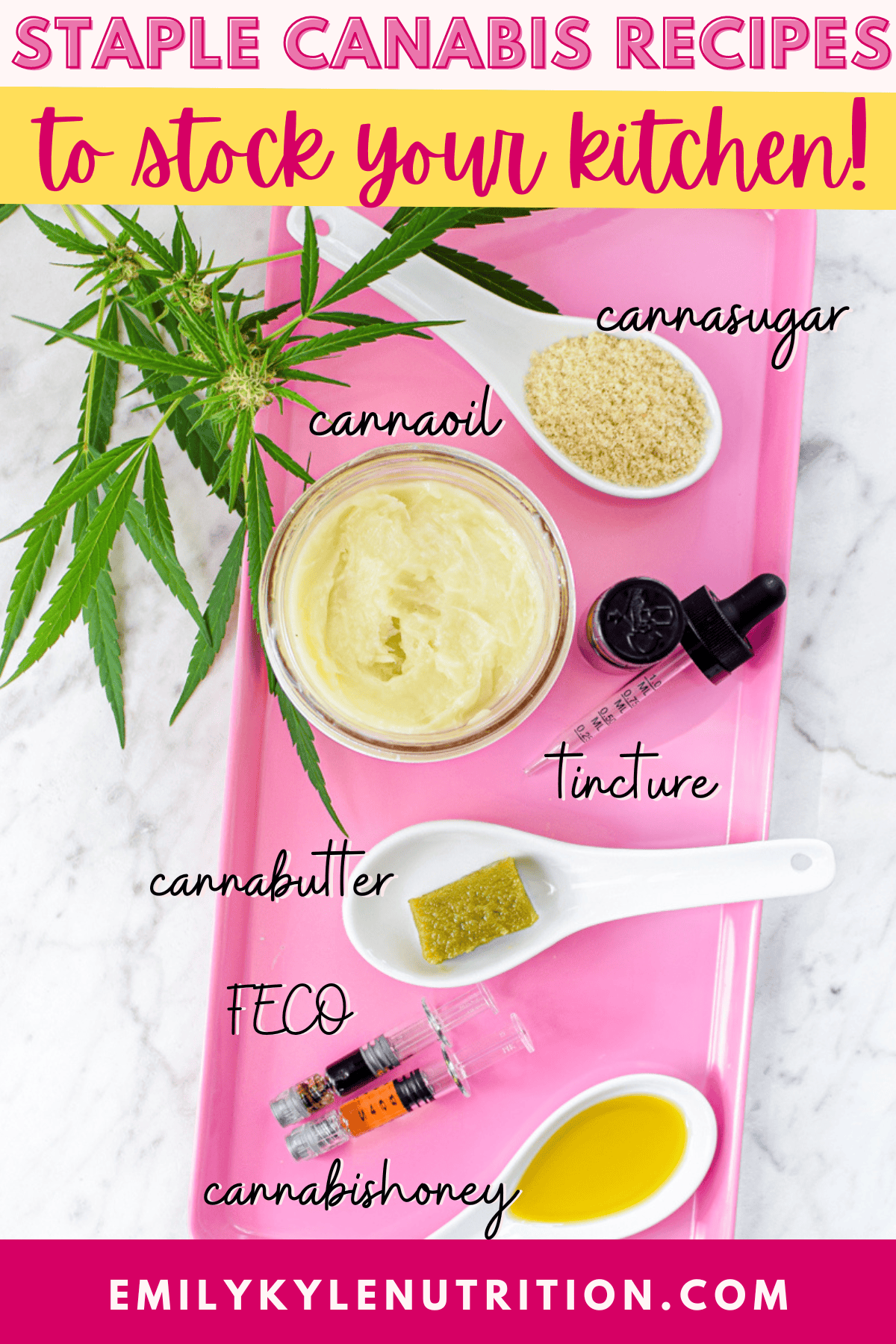
Table of Contents
- Article Features
- Why You Will Love This Guide
- Basic Staple Recipes To Try
- #1 – Cannabis Butter
- #2 – Cannabis-Infused Oil
- #3 – Alcohol-Based Tinctures
- #4 – Cannabis-Infused Sugar
- #5 – Full-Extract Cannabis Oil
- #6 – Cannabis-Infused Milk or Cream
- #6 – Cannabis Honey
- Important Things To Know
- Experiment & Commitment
- Delayed Onset of Effects
- More Potent Than Smoking
- Don’t Skip Decarboxylation
- Determining The Potency
- Get Creative In The Kitchen
- More Articles You Will Love
Article Features
- Seven recipes to try
- How to use these to infuse your favorite recipes
- Want to make it easy? Shop with me and have my high-quality cannabis products delivered directly to your door. Now shipping across the US!
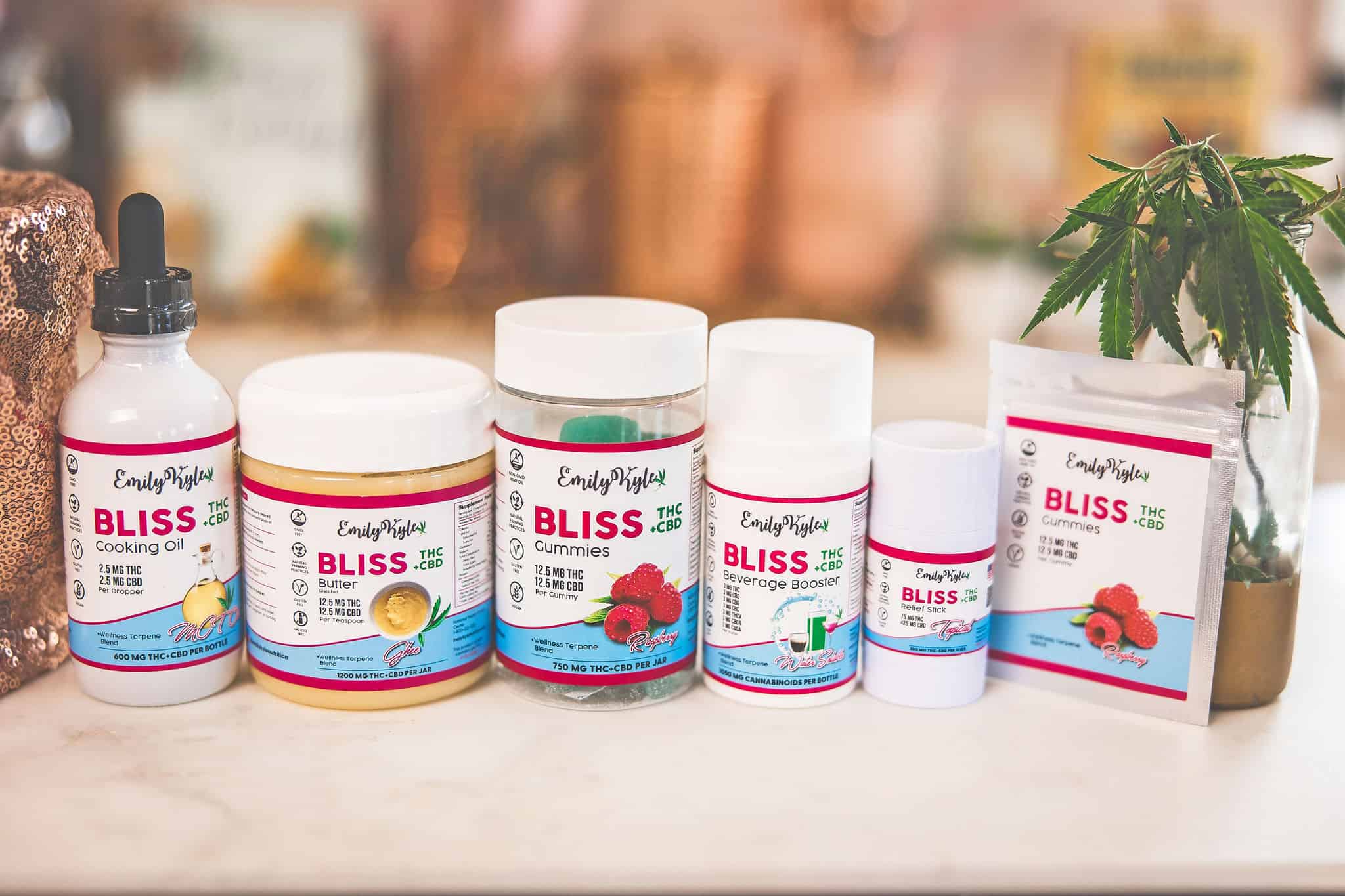
Why You Will Love This Guide
Embarking on your cannabis journey can sometimes feel a bit like stepping into a new world.
Trust me, I get it; that’s how I felt when I started, too.
The sheer number of recipes and differing opinions of “how to do it right” had me spinning, wondering where to begin.
It’s enough to make anyone hesitant to get started. But hey, that’s exactly why the Well With Cannabis Community and I are here!
Think of me and this guide as your culinary compass, walking you through the important essentials.
As you move through the guide, I want you to remember that these aren’t just recipes; they’re building blocks.
Mastering these recipes gives you the magic wand needed to transform your favorite dishes into a cannabis-infused delight.
So, let’s embark on this flavorful journey together, shall we?
With each recipe, you’ll gain confidence and a foundation of recipes that will add an extra layer of joy to your cannabis kitchen adventures.
Basic Staple Recipes To Try
Are you ready to get started incorporating cannabis into your culinary creations?
Below, I will share with you my go-to recipes that have not only been a hit in my own kitchen but are also a fantastic starting point for anyone just starting out.
Craving a bit more guidance or want to share your triumphs and hilarious mishaps?
I would love for you to join me over in my recipe-sharing Facebook group. With over 36,000 members, it’s a treasure trove of support, tips, and shared experiences waiting for you.
#1 – Cannabis Butter
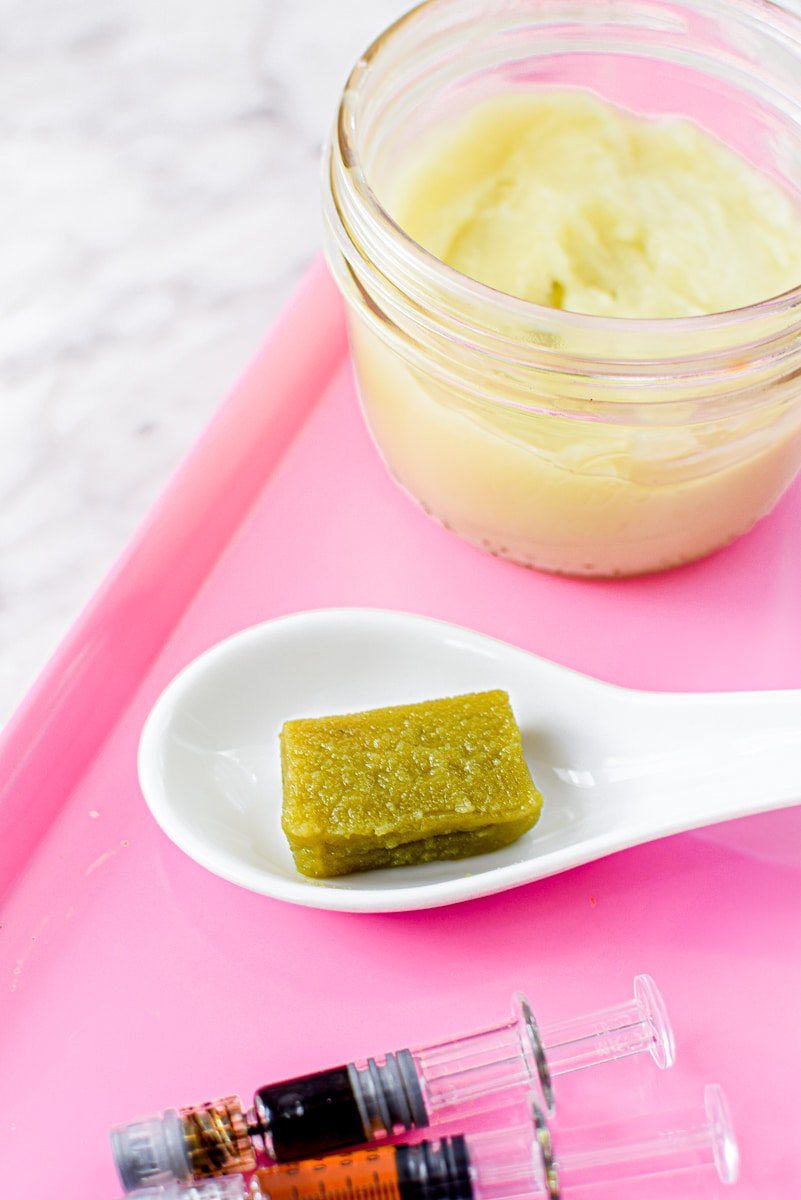
Cannabis butter, or cannabutter, is one of the most essential cannabis recipes for anyone looking to make edibles at home.
Once you have your cannabis butter made, you can use it in just about any recipe you can dream of that traditionally calls for butter.
You can make several kinds of cannabutter at home or purchase my Bliss Cannabutter and have it delivered straight to your door; just choose an option that works best for you.
Once ready, you can use cannabis butter in just about any recipe, from sweet to savory recipes, like classic brownies and chocolate chip cookies to cannabutter steak.
Cannabutter Recipes
Cannabis Infusions & Extractions
Easy Crockpot Cannabutter 🧈 with Photos & Video
Cannabis Infusions & Extractions
Instant Pot Cannabutter or Oil » Easy Guide
All Things Cannabutter
Easy Stovetop Cannabutter in a Mason Jar
All Things Cannabutter
Easy CBD Cannabutter Recipe
Cannabis Infusions & Extractions
Easy Homemade Kief Butter
Shop with Emily
Shop Now: Bliss Cannabutter
#2 – Cannabis-Infused Oil
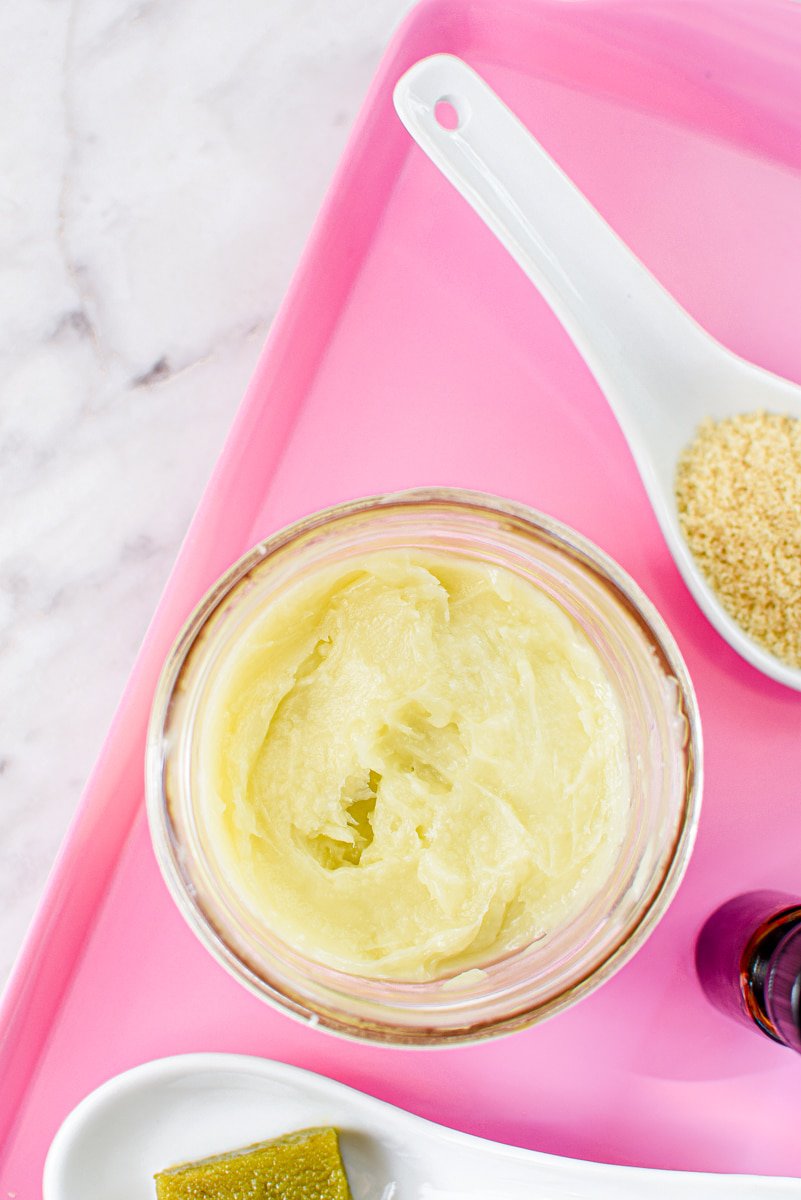
This recipe is the holy grail of all cannabis recipes, as it can be used as the base of many edible and topical recipes.
It is also naturally vegan, plant-based, and dairy-free.
Once you have your cannabis coconut oil made, you can easily swap it anywhere a recipe calls for fat.
This allows you to make just about any recipe a cannabis-infused recipe.
Beyond just cannabis edibles, cannabis-infused coconut oil is the perfect base for many topical recipes like cannabis salve and cannabis lip balm.
Cannabis-infused olive oil is a light, delicious, and versatile cannabis infusion perfect for no-cook applications.
The final product is a cannabis-infused olive oil that can be used to make many delicious cannabis recipes, like my popular cannabis pesto or zesty lemon cannabis vinaigrette.
Cannabis Oil Recipes
Cannabis Infusions & Extractions
Easy Cannabis Coconut Oil Recipe
All Things Cannabis Oil
Easy Cannabis-Infused MCT Oil
All Things Cannabis Oil
How to Make Cannabis Olive Oil
Cannabis Infusions & Extractions
Easy Homemade CBD Oil Recipe
Cannabis Infusions & Extractions
How to Make AVB Edibles with Already Vaped Bud
Shop with Emily
Shop Now: Bliss MCT Oil
#3 – Alcohol-Based Tinctures
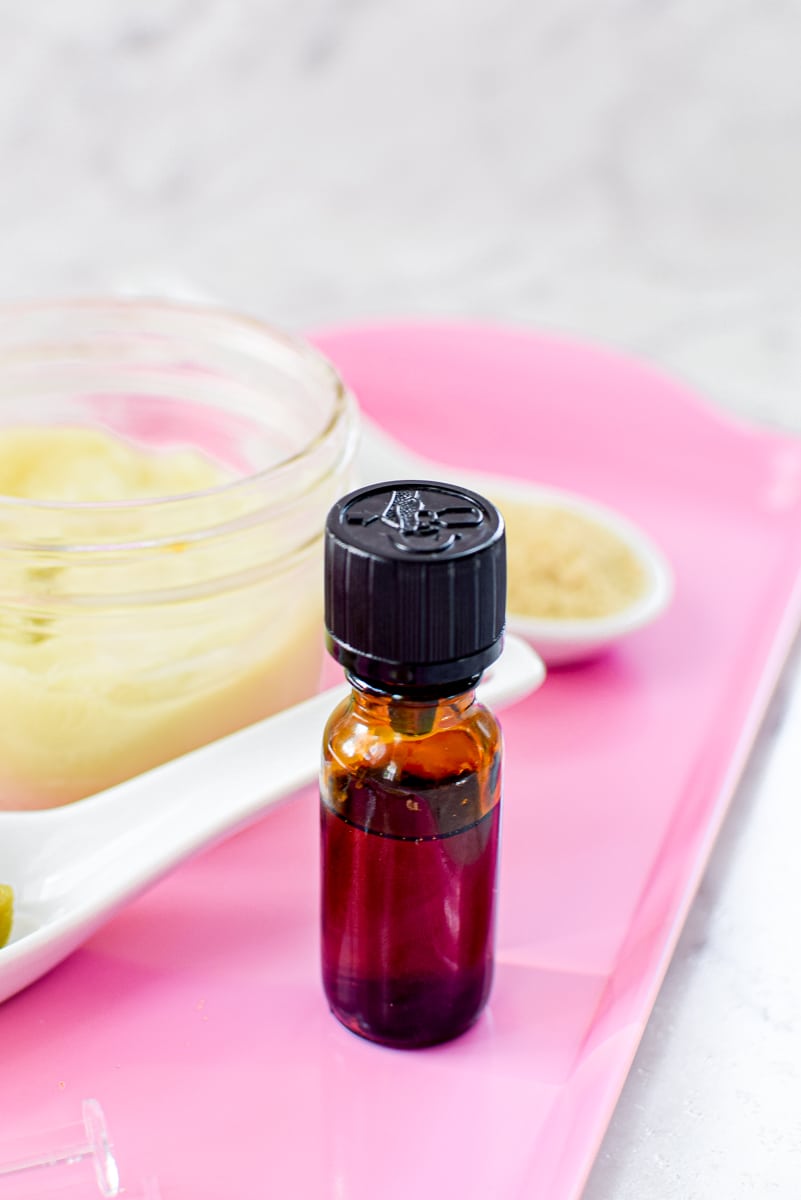
A cannabis alcohol tincture is traditionally a medicinal preparation made with high-proof grain alcohol to make your tincture at home.
Once you have a cannabis tincture made, you can use it as is or evaporate it to make full-extract cannabis oil or cannabis-infused sugar.
I have a few different cannabis alcohol tincture recipes for you to choose from.
Cannabis Tincture Recipes
Cannabis Infusions & Extractions
Easy Green Dragon Recipe » Cannabis Alcohol Tincture
Cannabis Infusions & Extractions
Golden Dragon QWET Cannabis Freezer Tincture
Articles & How-To Guides
Green vs. Golden Dragon Tincture with Lab Potency Tests
Cannabis Infusions & Extractions
How to Make a CBDA Tincture
Cannabis Infusions & Extractions
How to Make a THCA Tincture
Cannabis Infusions & Extractions
Cannabis Roots: Benefits, Uses & Tincture Recipe
#4 – Cannabis-Infused Sugar
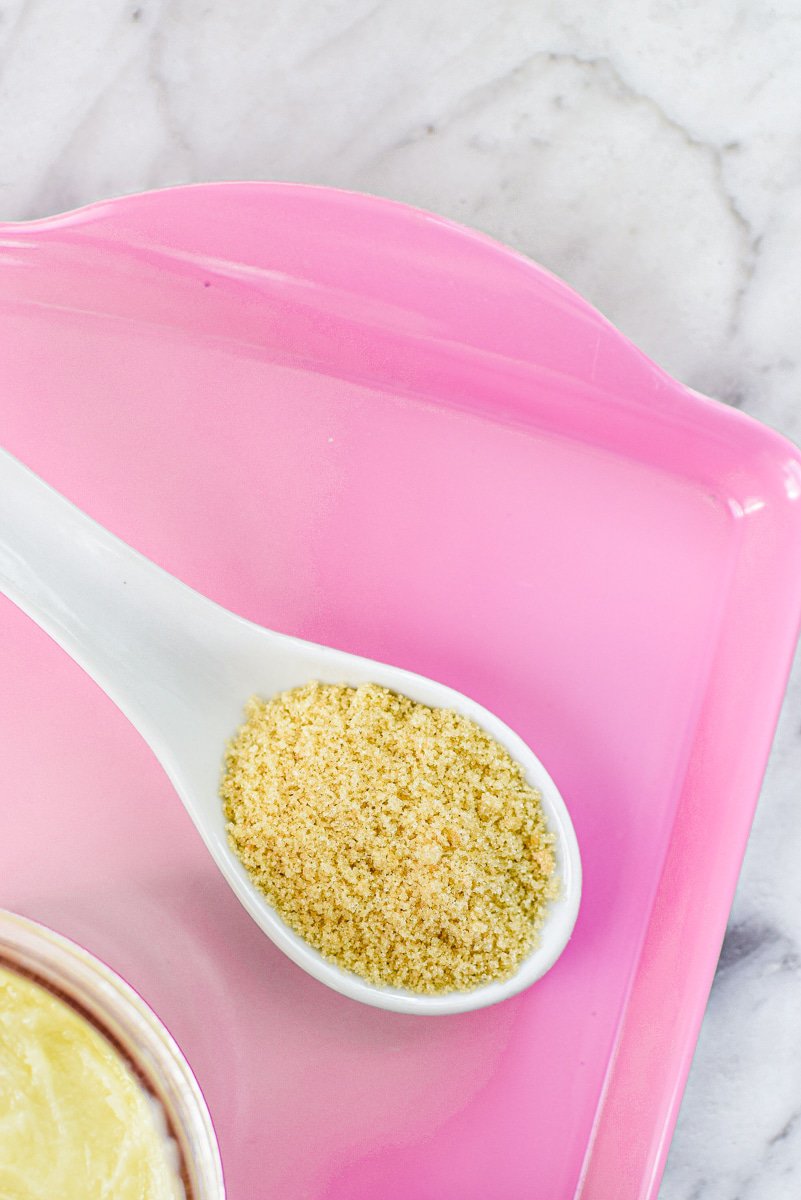
I love cannabis sugar because it can be a staple recipe that can infuse all other recipes once it is made.
I also love the versatility of cannabis sugar; you can use it for many different recipes, including brownies, chocolate chip cookies, cocktails, drinks, or a scoop in your morning coffee.
Plus, if you’re looking for a very, very potent recipe – you could use both cannabis butter AND cannabis sugar together for a double dose of CBD or THC.
Sugar and Salt Recipes
Cannabis Dessert Recipes
How to Make Cannabis Sugar – Quick & Easy Guide
Cannabis Sides & Snack Recipes
Quick & Easy Cannabis-Infused Salt
All Things Cannabis Oil
How to Make Cannabis Oil Powder
#5 – Full-Extract Cannabis Oil
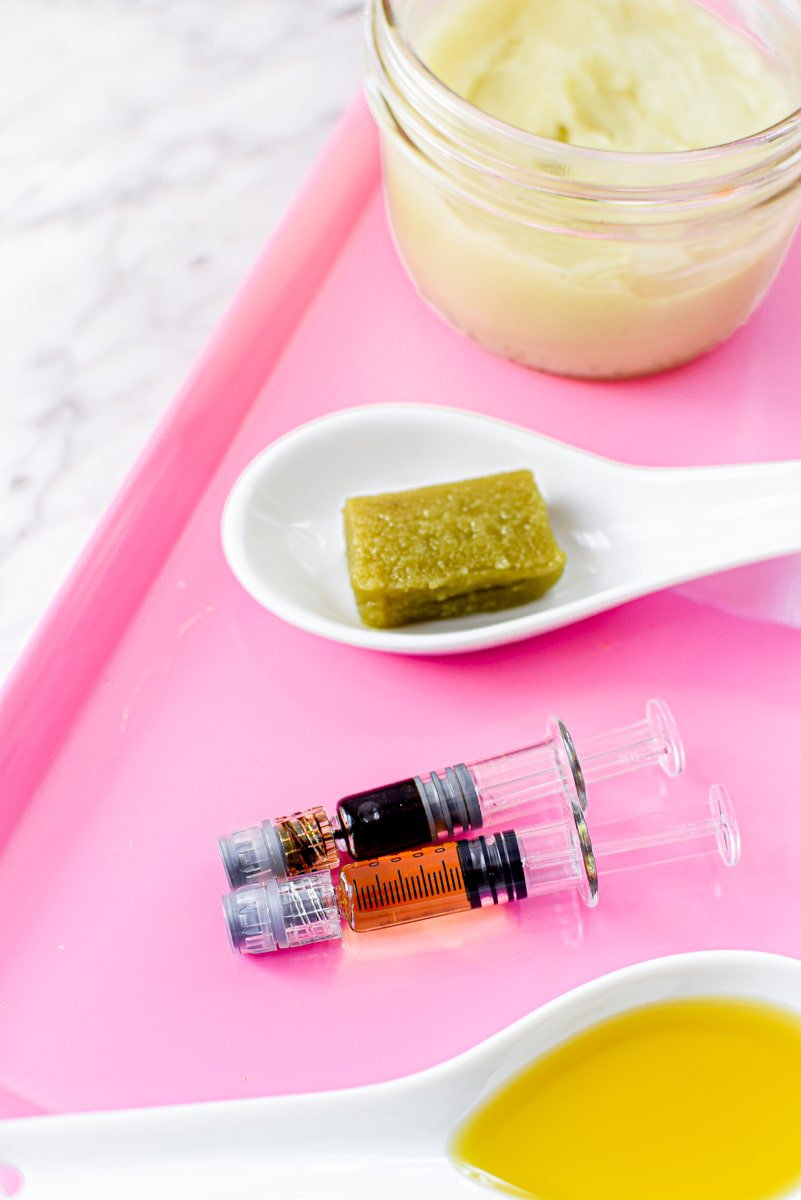
Full extract cannabis oil, also known as FECO, is a concentrated, whole-plant, full-spectrum cannabis extract.
This means that all of the important plant compounds, from cannabinoids to terpenes and other plant materials, are present in the extract.
Once the FECO is prepared, it can be used in various application methods, including tinctures, topicals, and edibles.
It is not recommended to use FECO for inhalation or vaping.
#6 – Cannabis-Infused Milk or Cream
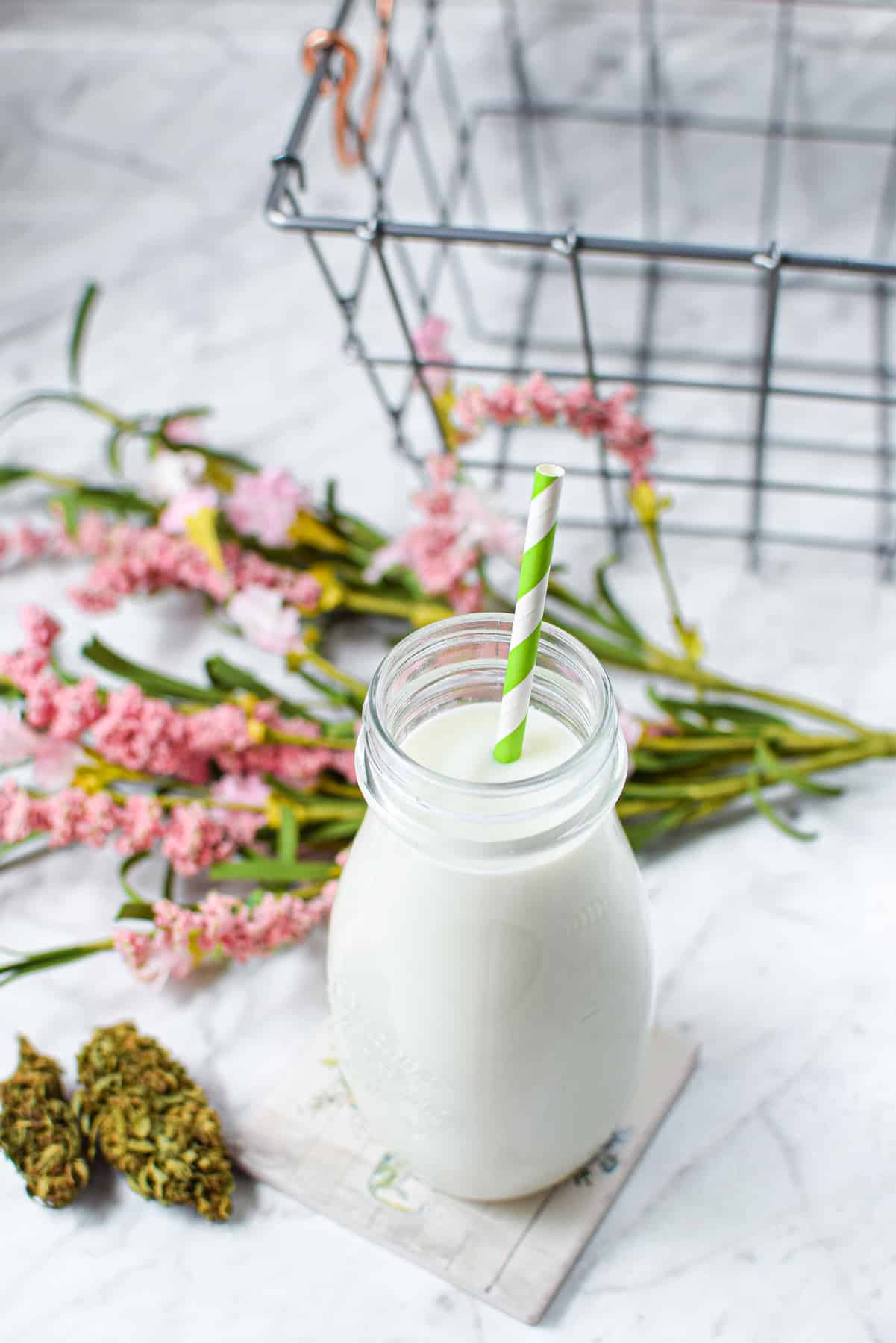
Cannabis-infused milk or cream is a wonderful staple recipe for making infused drinks more easily.
Whether you’re a seasoned chef in the cannabis kitchen or just starting out, this staple recipe will open up a new realm of delicious possibilities.
From smoothies and lattes to homemade ice cream, cannabis-infused milk or cream is versatile and delicious.
Infused Milk Recipes
Cannabis Drink Recipes
Easy Infused Cannabis Milk or Cream
Cannabis Drink Recipes
Easy Homemade Hemp Seed Milk
Cannabis Drink Recipes
Customizable Cannabis-Infused Coffee Creamer
#6 – Cannabis Honey
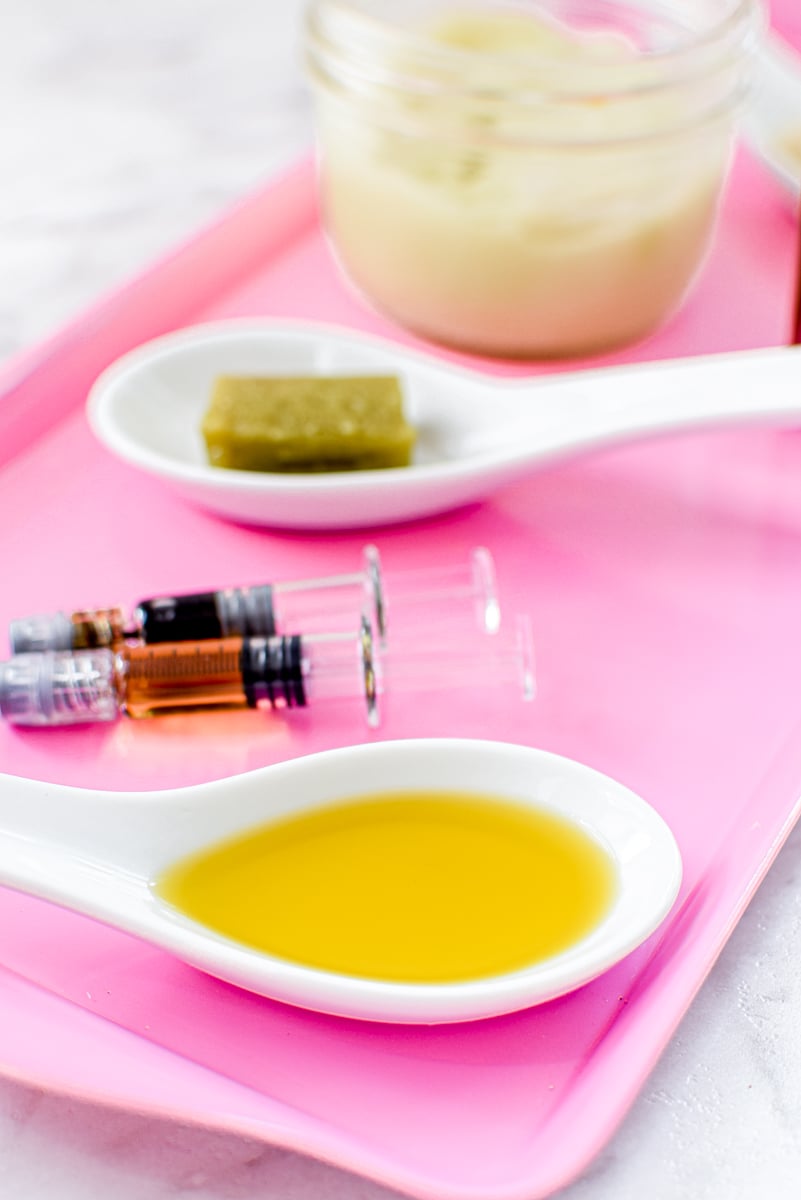
Cannabis honey isn’t just a sweet treat; it’s a versatile staple that beautifully bridges the gap between indulgence and wellness.
Imagine starting your day with a spoonful of this golden elixir stirred into your morning tea, offering a hint of sweetness and a gentle, soothing start to your day.
Or drizzle it over your breakfast yogurt bowl for a comforting yet uplifting boost.
With its remarkable blend of natural benefits, this honey transforms ordinary meals into nourishing moments of calm and pleasure, making it an essential addition to any cannabis kitchen.
Honey Recipe
Cannabis Infusions & Extractions
How to Make Cannabis-Infused Honey » The Right Way
Have you been searching for the best way to make cannabis-infused honey? This sweet and gooey cannabis honey, or “cannahoney”,…
Important Things To Know
Cooking with cannabis is easy when you have the right essential recipes to get you started.
Consuming cannabis edibles is a delicious way to medicate, but it can also have unintended consequences if you don’t know what you’re getting yourself into first.
If you are new to cooking with cannabis, there are a few important things to know before diving in and enjoying some of these delicious infused recipes.
Experiment & Commitment
Consuming edibles is truly a self-experiment that requires both curiosity and patience.
It will likely take several tries to find a dosage with an identifiable onset and duration time that you can rely on.
For this reason, I always recommend consuming cannabis edibles in the safety of your home.
I also recommend consuming edibles when you have a significant amount of time to stay put and comfortably enjoy the experience.
With the notoriously delayed onset and duration time, you should plan on devoting at least 6-12 hours to your edible experience.
During this time, plan to be safe in your home with no need to travel anywhere, no driving a car, and or operating heavy machinery.
Delayed Onset of Effects
It could take anywhere between 30-minutes to several hours to feel the effects of your edible as it goes through your digestive system.
As tempted as you may be to eat another serving after not feeling anything for 30 minutes, be sure to give yourself more time before eating it.
This will prevent any overconsumption of THC, which may cause unwanted side effects if that is not your intention.
More Potent Than Smoking
When cannabis is eaten, it goes through the digestive system.
As it passes through the liver in what is known as the hepatic first-pass metabolism, THC is converted into 11-OH-THC, a potent psychoactive metabolite.
This intoxicating compound causes more potent, increased intoxicating effects for most edible consumers.
Unknowingly consuming too much THC, especially cannabis edibles, may result in disorientation, dizziness, drowsiness, anxiety, and tachycardia.
Additionally, each person’s body will react differently to different cannabinoids due to our unique endocannabinoid systems (ECS).
Understanding your own ECS will help you determine your reaction to cannabinoids.
You can learn more about the endocannabinoid system in your body with in-depth education from my Cannabis Compass Online Course.
Don’t Skip Decarboxylation
Before making any of these staple recipes, it is important to note that all raw cannabis or dried cannabis must undergo a process called decarboxylation to enjoy the active forms of CBD or THC.
Raw and dried cannabis flower contains what is known as tetrahydrocannabinolic acid (THCA) and cannabidiolic acid (CBDA).
These cannabinoids are found in the raw cannabis plant material and contain powerful health benefits.
However, these cannabinoids are not intoxicating in their natural state.
You will want to decarb in an oven or Instant pot and adjust your time and temperature depending on whether you’re decarbing THC or CBD flower.
Determining The Potency
Without knowing the concentration of CBD or THC in your starting raw material and without lab testing, it is nearly impossible to estimate the final potency of your homemade cannabis recipes.
Knowing the percent concentrations of your starting flower, you can use my online edibles calculator to guestimate the final product potency.
Get Creative In The Kitchen
One of the biggest things that hold members in my Well With Cannabis Community back from experimenting in the kitchen is the scary thought of – ‘what if I mess it up?’
For many people, getting cannabis may still be difficult or illegal, and the thought of ‘wasting’ it in a botched recipe is enough not to want to try.
One recommendation is to get started experimenting in the kitchen with CBD flowers.
With less than 0.3% THC, CBD hemp flower is legal in most states, easier to access, and cheaper.
While it does not contain the THC traditionally desired in a cannabis edible, it is a great way to allow yourself time and mistakes in the kitchen.
As I always tell my new members, it’s important to note that edibles affect us all completely different which is why it is so important to remain patient and be willing to experiment.
I suggest trying many different things, like the recipes featured in this post, to see what your body responds to best.
Always start with a low dose and titrate your way up from there. It may take some time to find your perfect option, but when you do, it’s so worth it!
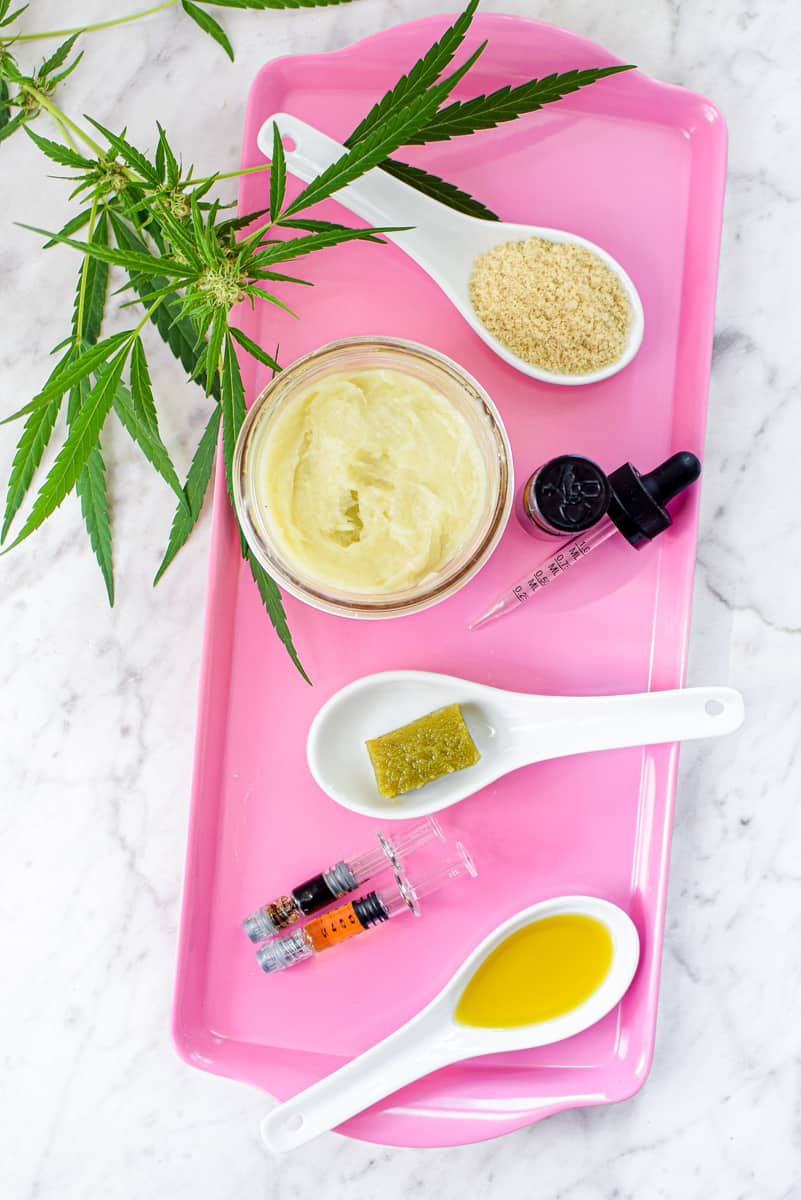
More Articles You Will Love
Articles & How-To Guides
A Beginner’s Guide to Cannabis Edibles
All Things Cannabis Oil
Discover the Many Types of Cannabis Oil Infusions
Tincture Resource Guide
How to Make Edibles with Alcohol Tinctures
Articles & How-To Guides
How to Decarb & Make Edibles with Cannabis Concentrates
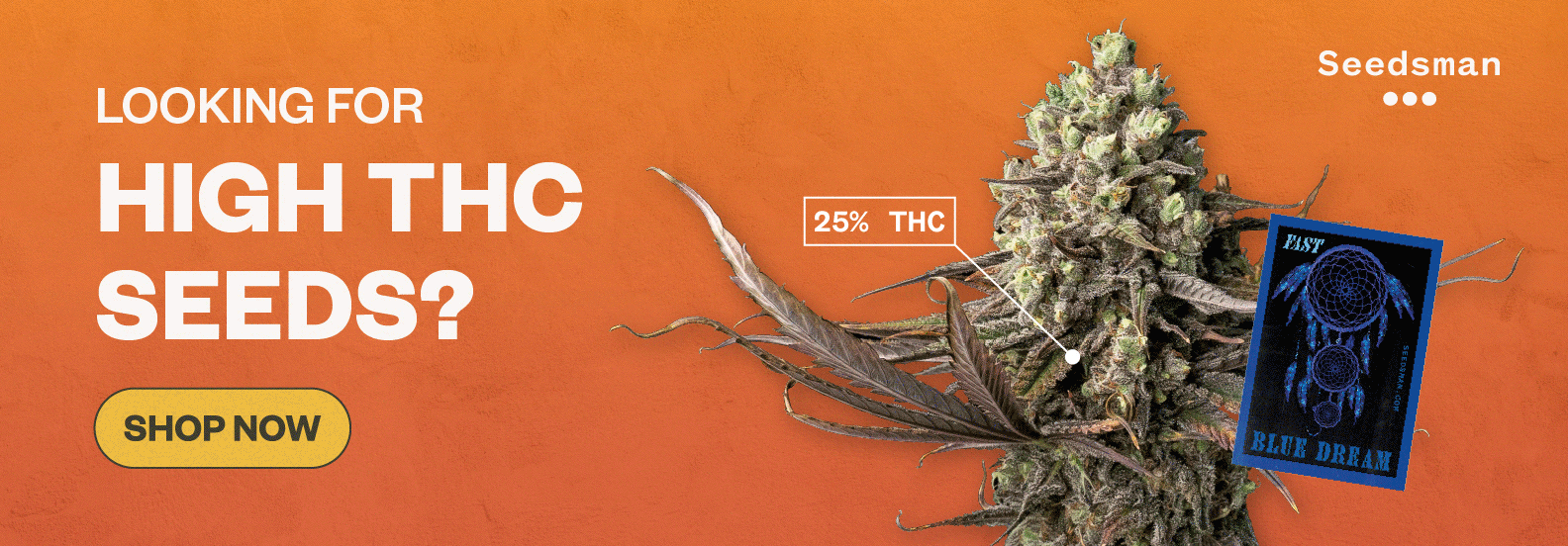

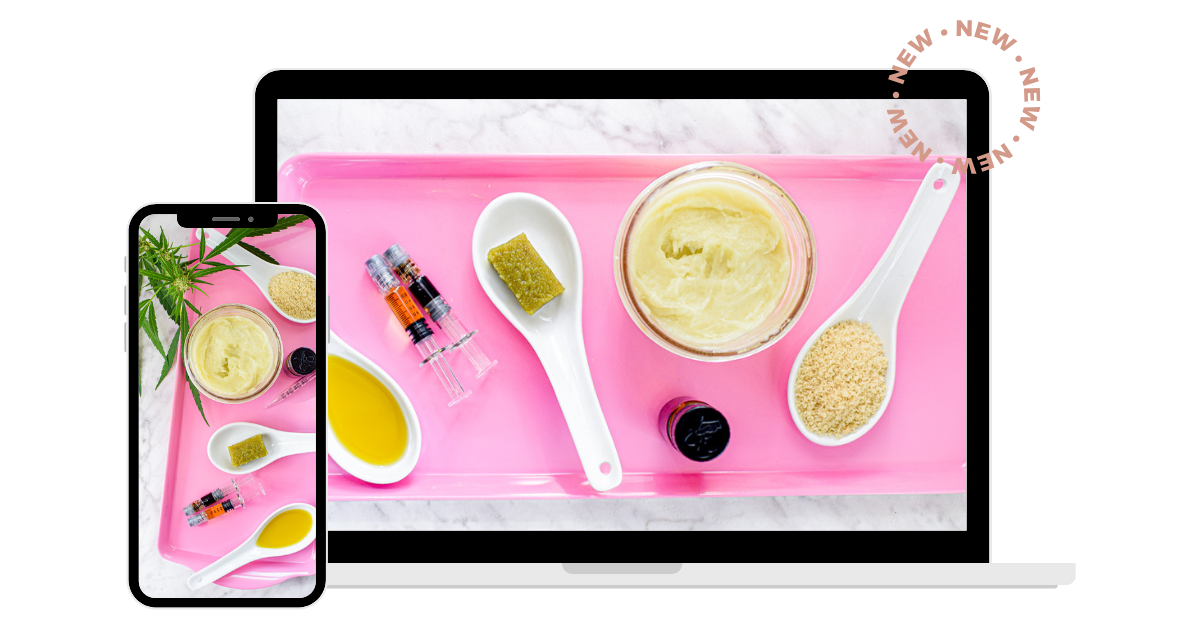
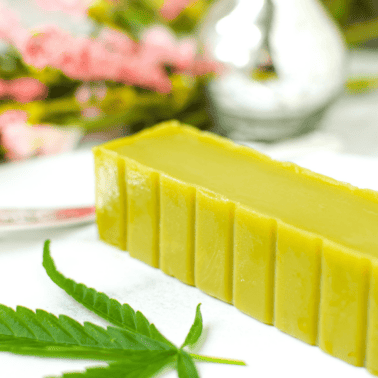
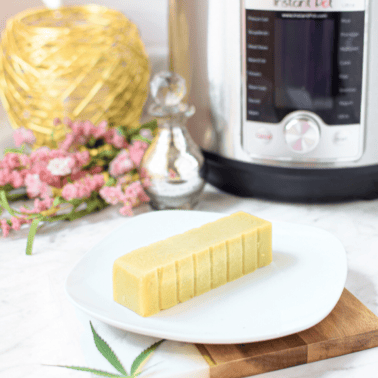
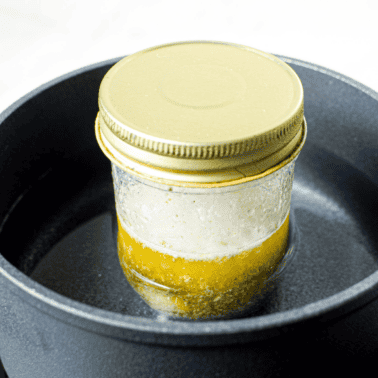
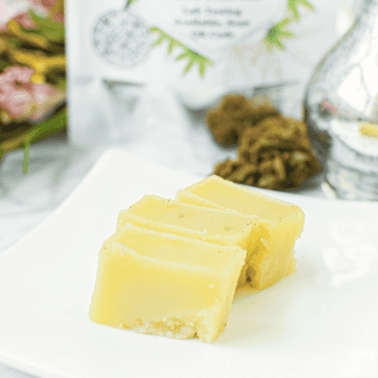
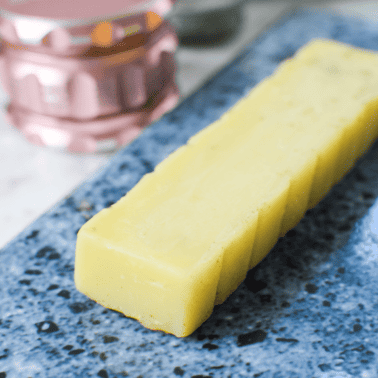
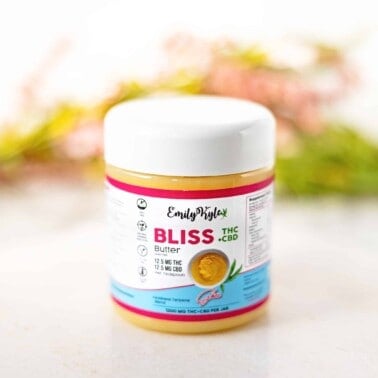
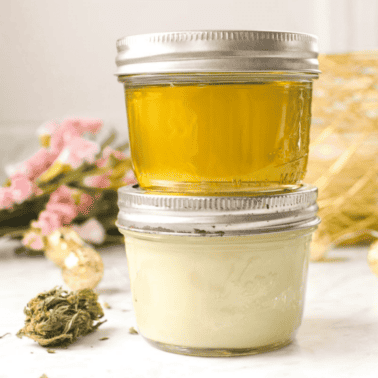
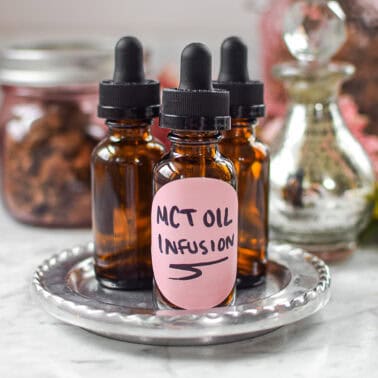
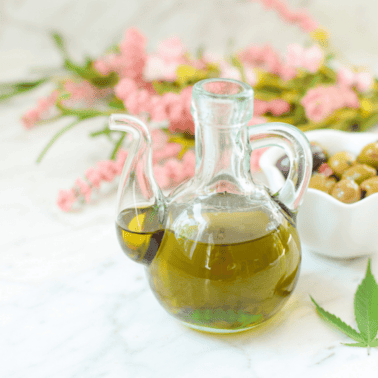
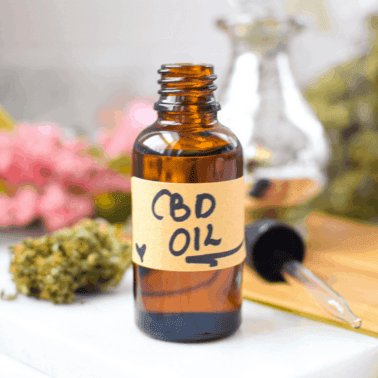
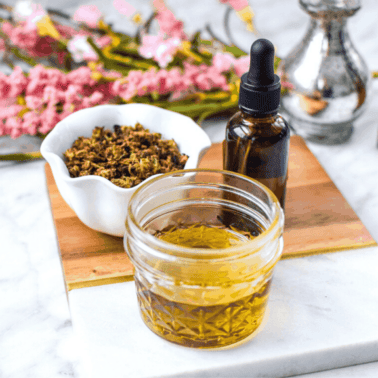
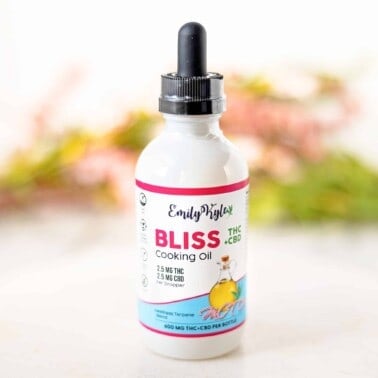
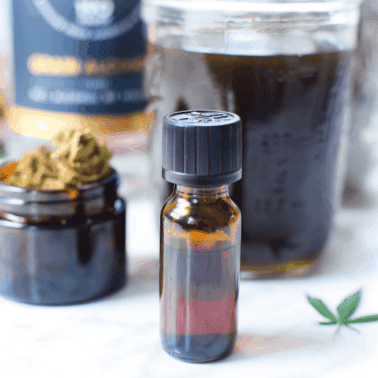
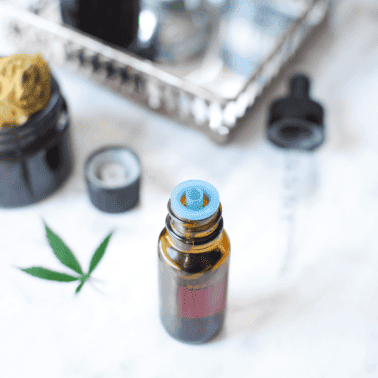
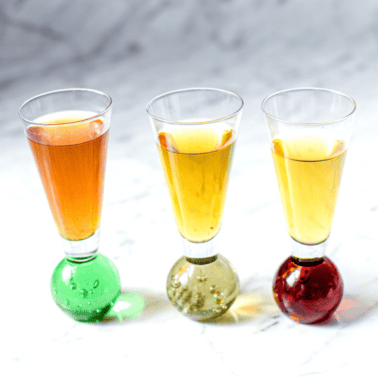
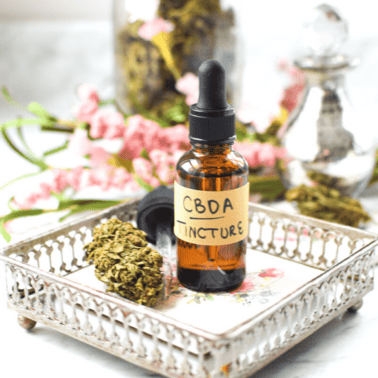
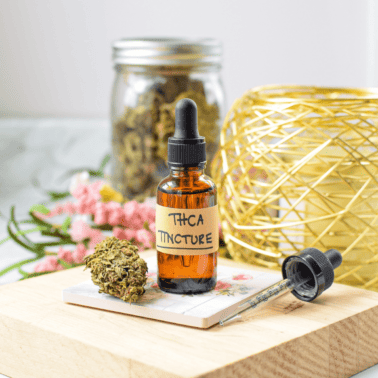
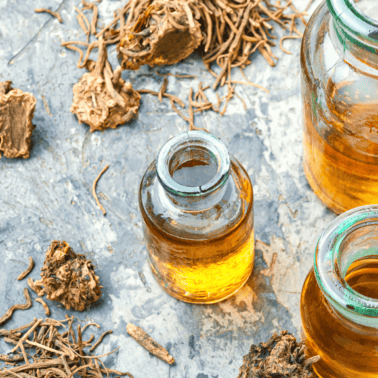
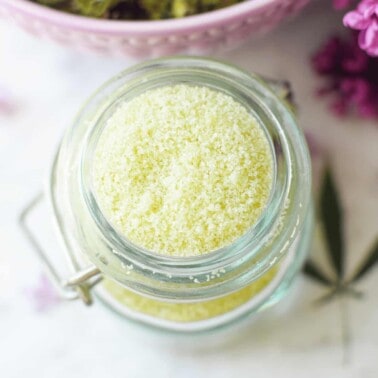
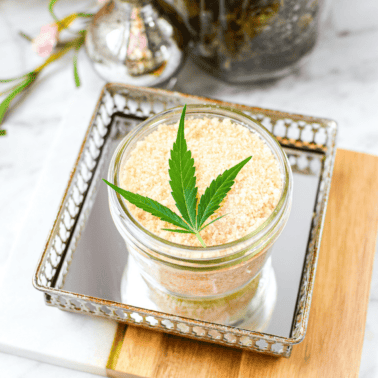
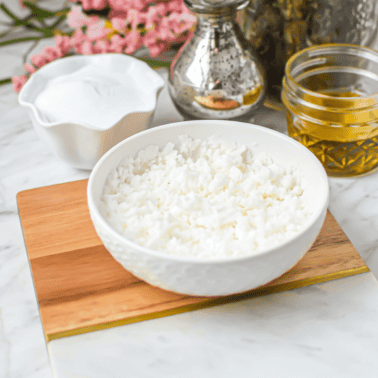
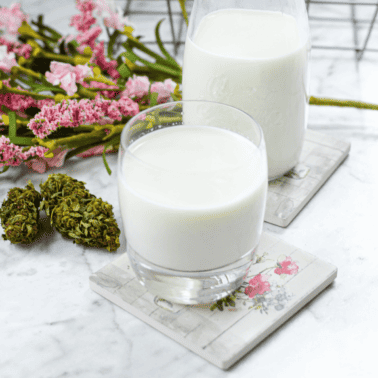
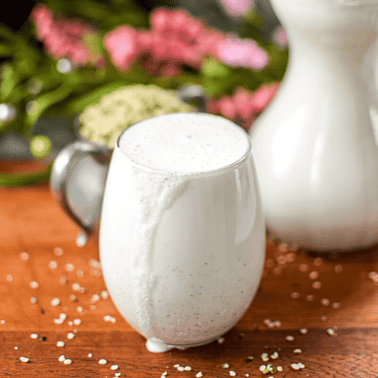
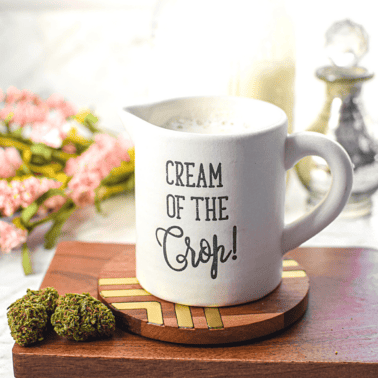
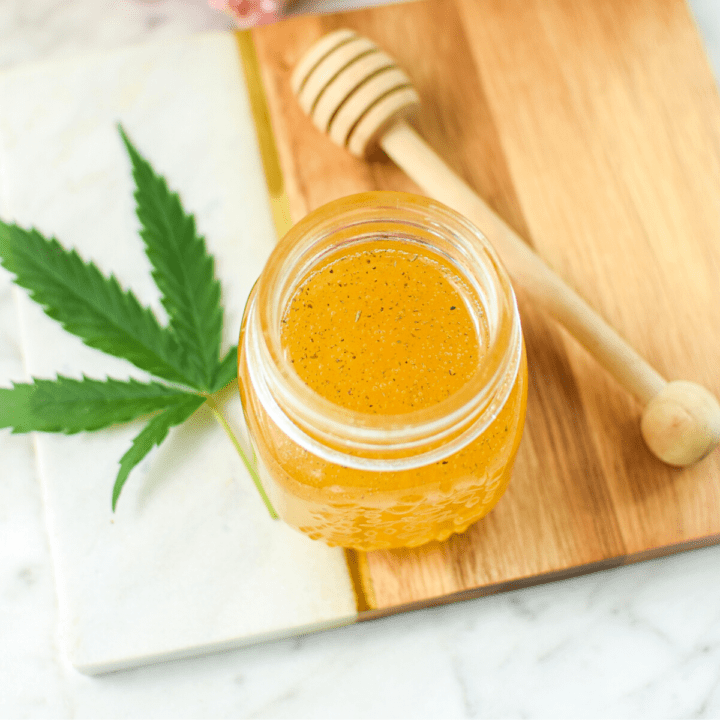
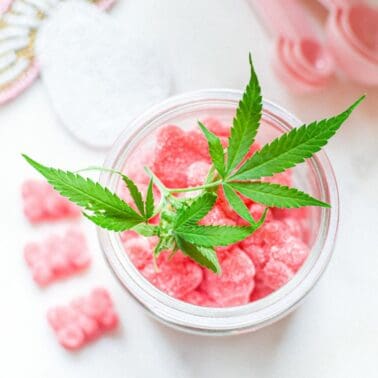
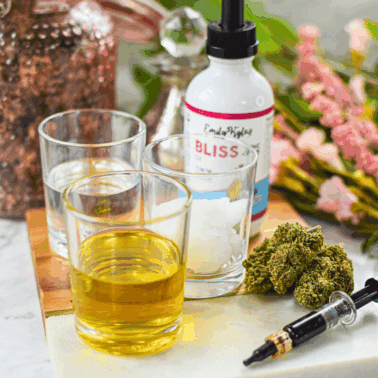
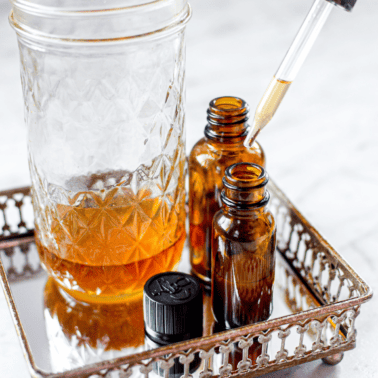
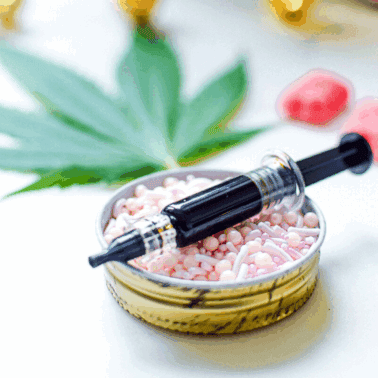
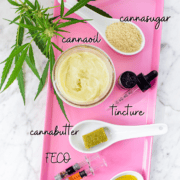








Hi Emily have any recipes for making tincture
Hello Connie, yes, here are my two most popular: Green Dragon and Golden Dragon. It’s just a matter of personal preference which one you choose!
When would you consider flower to be too old to use for edibles? Especially if stored in air tight containers with humidity packs…or not?! At what rate does THC and CBD degrade or lose potency?
Hi JJ. Cannabis is never too old because you will always get some benefit from it. THC converts to CBN over time, producing sleepier effects. With optimal conditions for storage, cannabis can preserve its freshness between six months and a year. Some studies have shown loss of potency around the one-year mark.
16% potency lost at 1 year
26% potency loss at 2 years
34% potency loss at 3 years
41% potency loss at 4 years
In reality, the lifespan of cannabis depends on how it is stored. If you keep cannabis in the right conditions, you can preserve terpenes and cannabinoids, deter issues with mold and keep weed fresher for longer.I hope this helps!
Just asking about size of mason jars, I didn’t know if you are using quarts or pints. Thank you
Hi Lisa. Pint jars are preferred since they easily fit most devices used for infusing.